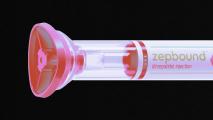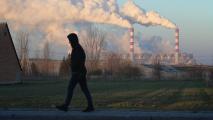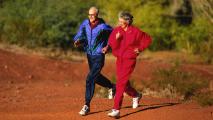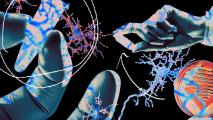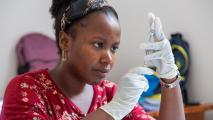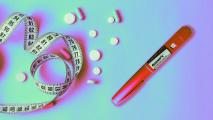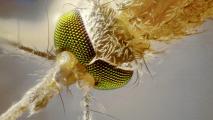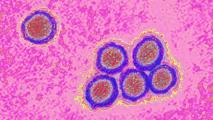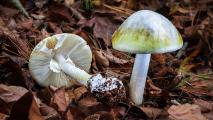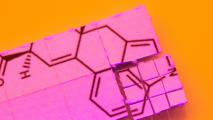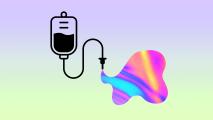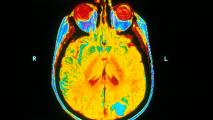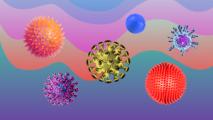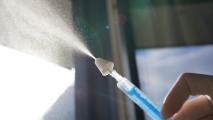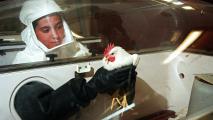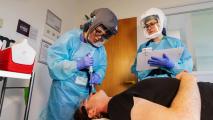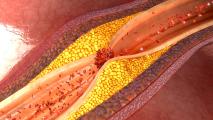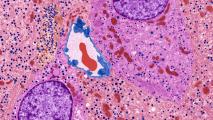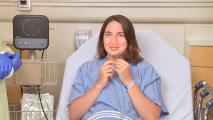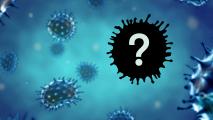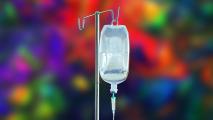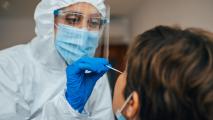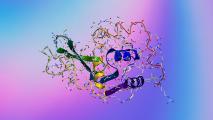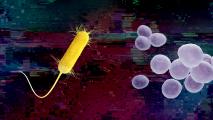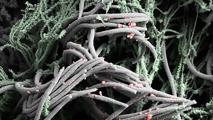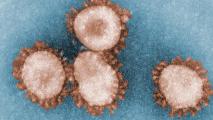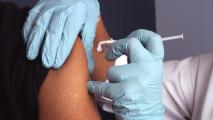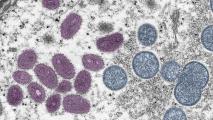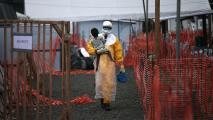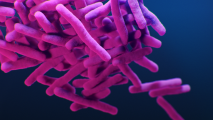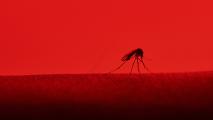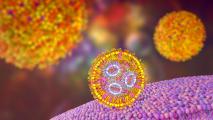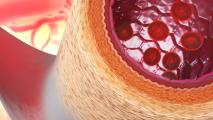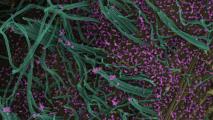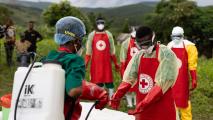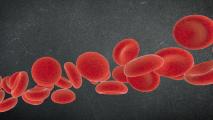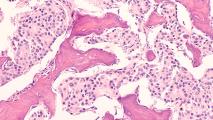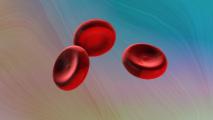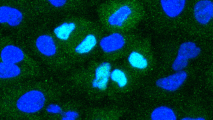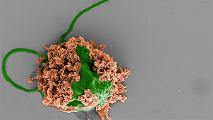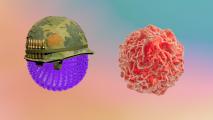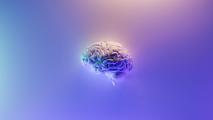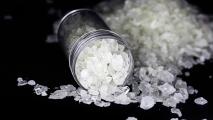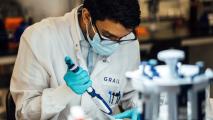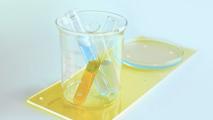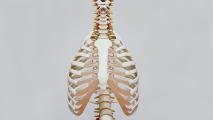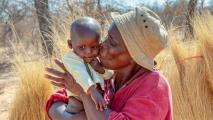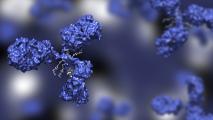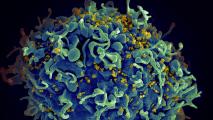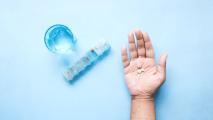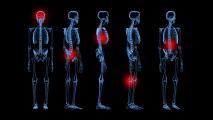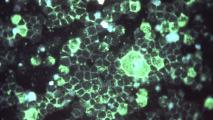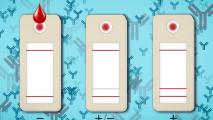Field: Public Health
How consensus can undermine science
The main objective of consensus statements appears to be to reduce doubt, which may stifle scientific inquiry.
Progress happens because solutions create new problems to solve
Solutionism means fully accepting what’s in front of us and enthusiastically stepping up to meet the challenge.
Has the US reached “peak obesity”?
A CDC survey suggests America’s obesity rate may be falling. Is this a turning point in the obesity epidemic? Or just a temporary plateau?
Are microplastics really destroying our health?
Scientists still don’t know how microplastics impact human health, but they do have ideas for stopping their spread.
Potato chips or heroin? The debate on social media and mental health
Experts disagree on whether social media causes mental health issues in adolescents despite looking at the same data. Here's why.
Scientists have invented a method to break down “forever chemicals” in our drinking water
Researchers have discovered a way to eliminate "forever chemicals," or PFAS, which usually take hundreds or thousands of years to break down.
When an antibiotic fails: MIT scientists are using AI to target “sleeper” bacteria
Most antibiotics target metabolically active bacteria, but AI can help efficiently screen compounds that are lethal to dormant microbes.
The threat of avian flu — and what we can do to stop it
Avian flu is infecting cows on US dairy farms, and now a person has caught it — but new research could help us avoid a bird flu pandemic.
A dietician explains “Zepbound,” the newest weightloss drug
Zepbound recently joined the list of obesity-fighting drugs administered as injections that has been approved by the FDA.
Three ways your environment affects your intelligence
These examples underscore the importance of environmental regulation and policies; otherwise, we might just be throwing away our intelligence.
The most damaging exercise myth
It's a common belief that it's normal for adults to be less physically active as they age. This might be the most pernicious exercise myth.
Red meat causes heart disease. Except when it doesn’t?
The problem is not scientific consensus on red meat, but how specialists analyze risk when proffering public guidelines.
The 5 most exciting clinical trial results of 2023
In 2023, several potentially game-changing meds, including ones to treat pain and high cholesterol, showed huge promise in human trials.
Why do women live longer than men?
Women tend to live longer than men around the world – but the gap life expectancy is not a constant. These stats tell the story.
How do researchers study the prevalence of mental illnesses?
Data on mental health is essential to understand the scale of mental illnesses. How do researchers collect this data, and is it reliable?
What BMI can’t tell us about our health
Body mass index (BMI) continues to be the go-to tool for medical doctors and population researchers despite saying little about our health.
Why aren’t we moving faster on malaria vaccines?
COVID-19 shots were rolled out within weeks of approval. The malaria jab is being delayed until mid-2024. Why?
New obesity treatments could reshape the world
New obesity treatments, including GLP-1 agonists and gene therapies, could make it easier for people to lose weight and keep it off.
Not all repellents are equal – here’s how to avoid mosquito bites this summer
Researchers studied different types of mosquito repellents and their efficacy for over a decade. Here's what they found.
If you have a complex project, follow “Gall’s law” — or it will fail
Success can be based on the fundamental observation that working complex systems arise from working simple systems.
New meningitis vaccine is the first to cover new emerging strain
A new meningitis vaccine that protects against five bacterial strains outperformed an existing shot in a phase 3 trial.
New obesity drug cut weight by 58 pounds in trial, making it the most effective yet
Eli Lilly announced results from a phase 2 clinical trial of the newest entrant in the obesity treatment space.
Cheap drug appears to cut long COVID risk by 41% in small study
The diabetes drug metformin cut COVID-19 patients’ risk of later developing long COVID by 41% in a small study.
Gain-of-function research is more than just tweaking risky viruses
Gain-of-function experiments in the lab can help researchers get ahead of viruses naturally gaining the ability to infect people in the wild.
The radical drop in maternal mortality was a public health miracle
In 1758 in Sweden, 1205 mothers died for every 100,000 live births, which was likely representative of the global maternal mortality rate.
New nasal spray aimed at reversing fentanyl overdoses is now approved
A new overdose-reversing spray that works fast but lasts longer has been approved by the FDA, and will be available by the fall at earliest.
Pill version of obesity drug reduced weight almost 13% in new trial
Novo Nordisk has announced positive results for an oral version of the popular weight loss drug sold as Ozempic and Wegovy.
CRISPR uncovers possible antidote for death cap mushroom poisoning
Researchers have figured out how the mushroom's main toxin enters human cells — and maybe how to stop it.
New drug candidates found in an unlikely place
Costa Rica’s famed sloths harbor bacteria in their fur which can create antibiotic compounds — a potential source of future therapies.
LSD effective as major depression therapy in phase 2 trial
MindMed and University Hospital Basel have announced top line results for their phase 2 trial.
Nurses are breaking the mold to set out on their own
Tech platform Hydreight wants to help nurses go into business for themselves by being a turnkey solution.
DMT appears effective for depression up to six months later
Small Pharma has announced the results of a six-month follow-up for their phase 2a trial of DMT for depression.
“Sunshine Calls” help depression and loneliness, study finds
A trial of “Sunshine Calls” found that the empathy-based phone calls helped reduce depression symptoms in older patients.
One way to speed up clinical trials: Skip right to the data with electronic medical records
It takes around 17 years for medical research to translate into clinical practice — why not use EMR data to speed things up?
Epilepsy surgery has a success rate of only 50%. This digital brain may change that.
Using patient data and AI, French researchers have created a digital model of the brain to figure out which brain region needs removed.
Viruses cause 200+ diseases. This one drug may be able to treat them all.
New Zealand-based startup Kimer Med wants to create an antiviral that would be effective against many known viruses — and unknown.
Narcan is now available over-the-counter in the US
Naloxone administered by nasal spray can be a lifesaving drug with minimal side effects. It's now approved for over-the-counter use in the U.S.
Bird flu is everywhere. Are the vaccines ready?
As avian influenza continues to devastate the bird population and jump into mammals, scientists are preparing to protect two important groups.
What that study linking sugar-free sweeteners and heart disease really tells us
A new study links higher blood levels of sugar-free sweeteners, commonly found in ketogenic diet foods, to a greater risk of death.
As bird flu spreads in the US and worldwide, what’s the risk that it could start a human pandemic?
Many virologists are concerned that the latest bird flu outbreak could spill over to humans and cause a new human pandemic.
This easy fix could eliminate harmful chemical exhaust from home heaters
Retrofitting gas heaters with this catalyst could slash their environmental impact.
Making electricity from wastewater
Researchers have developed a “sandwich-like” membrane that removes pollutants while generating power.
Does online opioid treatment work?
A sudden shift to virtual health care has increased access — and possibly outcomes — for patients with opioid use disorder.
Volunteers were purposefully infected with COVID-19. Was it worth it?
It has been a year since the first COVID human challenge data was published. What did we learn, and can HCTs prepare us for the future?
Watch: Scientists breed flame-resistant cotton, without added chemicals
USDA researchers have developed self-extinguishing cotton lines, potentially cutting down on the need for flame retardants in the future.
New kind of pill cut “bad” cholesterol up to 60% in clinical trial
In a phase 2 trial, a daily oral medication reduced LDL cholesterol levels by up to 60%.
Scientists treated heart attacks in mice — before they happened
By toggling an important heart gene, scientists have treated mice for a heart attack preemptively.
New transplant technique cures type 1 diabetes in monkeys
Massachusetts General researchers have developed a new form of transplantation that cured type 1 diabetes in monkeys.
Lasers can help prevent surgical site infections in hospitals
Canadian company Ondine is using laser frequencies to help prevent surgical site infections.
First at-home test can tell you if it’s COVID or flu
The FDA has granted authorization to an at-home test that can tell COVID from flu, the first of its kind.
DMT therapy appears effective for depression in phase 2 clinical trial
London-based Small Pharma has released positive top-line results for their phase 2a trial of DMT as an antidepressant.
Yale researchers have found a way to spot new viruses
By screening negative nasal swabs for a specific antiviral protein, a Yale team believes we may be able to find hidden viruses before they emerge.
ChatGPT-like AI creates new bacteria-killing proteins
Using a large language model AI, biotech startup Profluent has created new antimicrobial proteins.
This “living medicine” can eliminate a deadly lung infection
Researchers have engineered bacteria to create a “living medicine” against a nasty respiratory bug.
Moderna’s RSV vaccine over 80% effective in early analysis
Moderna’s mRNA RSV vaccine for adults looks to be over 80% effective, based on early data from a large phase 3 trial.
Stanford nasal study could lead to “morning after” virus spray
A “morning after” antiviral nasal spray could be created using new knowledge about how SARS-CoV-2 invades your nose.
New mRNA universal flu vaccine against all known subtypes takes promising first steps
A new universal flu vaccine candidate that uses mRNA to target all known flu subtypes looks promising in animal models.
Harvard and Kraft Heinz are trying to make sugar healthier
Instead of replacing sugar, Wyss scientists had an idea: what if they change sugar to make it healthier?
Just a few short bursts of physical activity each day might yield huge health benefits
Researchers tracked 25,241 non-exercisers wearing accelerometers to find out of brief bursts of activity lowered their risk of dying.
New “future-proof” drug can fight COVID-19 and the common cold
Researchers have identified a compound capable of stopping multiple coronaviruses in cell and tissue models.
Scientists uncover key to future hepatitis C vaccine
While treatments are available for HCV-related infections, they are expensive, hard to access, and do not protect against reinfection.
How flu got milder since 1918 pandemic
The risk of death from influenza has declined over time, but globally, hundreds of thousands of people still die from the disease each year.
How to fight Covid with light
Some wavelengths of light in a range called far-UVC kill microbes in experiments and appear to be harmless to people.
UK study suggests single dose of monkeypox vaccine is 78% effective
A new analysis by the UK Health Security Agency has determined that one shot of a monkeypox vaccine is 78% effective at preventing infection.
When is the best time to exercise?
Though morning workouts may be optimal for circadian rhythms, afternoon exercise tends to be slightly more efficient.
Moderna to develop mRNA vaccines for Ebola
Moderna is reportedly nearing a deal with the DoD to develop mRNA vaccines for biological threats like Ebola
African researchers push for a human challenge trial to fight TB
Tuberculosis kills over a million people a year. Researchers in Malawi are pushing for a clinical trial that may help change that.
A malaria-fighting antibody has passed phase 2 trials
An antibody designed to prevent malaria infection has proven effective in phase 2 trials in Mali.
New mRNA vaccine for flu and COVID-19 enters human trials
Pfizer and BioNTech's new mRNA vaccine designed to protect against COVID-19 and the flu has entered human trials.
Australian researchers have manufactured a living blood vessel
A blood vessel isn’t just a simple tube. Researchers at the University of Sydney have developed an implant capable of mimicking its complexities.
Flu and RSV can fuse into a new kind of virus
In a new discovery, researchers at the University of Glasgow have observed hybrid viruses capable of infecting lung cells in the lab.
As Ebola reaches Ugandan capital, vaccines race to catch up
Caused by the Sudan strain of Ebola, current vaccines and therapies approved for Ebola won’t work in Uganda. But these might.
UK scientists solve a decades-long blood mystery
Researchers have discovered a new blood group which may have been behind the tragic loss of two babies.
Cambridge researchers have discovered how cancer spreads
New research out of the University of Cambridge may have discovered a mechanism behind metastasis.
New test catches deadly bloodstream infections much faster
Bloodstream infections have a high mortality rate. But a new test to catch them faster could lead to more saved lives.
A newly discovered class of RNA can fight off multiple viruses, including flu and SARS-CoV-2
Harvard-affiliated researchers have discovered a form of double-stranded RNA which may be a potent antiviral.
Tiny robots completely clear out deadly pneumonia infection in mice
Researchers have created microscopic robots capable of clearing pneumonia from the lungs of mice.
A modified herpes virus completely wiped out a terminal cancer
In a small phase 1 trial of a herpes-based cancer therapy, one patient had their tumors completely eliminated.
New Alzheimer’s drug slows mental decline by 27% in clinical trial
Eisai and Biogen are reporting that their new Alzheimer’s antibody slowed cognitive decline by 27% in a global trial.
What’s causing the alarming rise in cancer for adults under 50?
A new review finds that 14 different cancers, including eight related to the digestive system, are increasing in people under age 50.
I’ve had COVID and am constantly getting colds. Did COVID harm my immune system?
Does COVID somehow weaken the immune system to make us more prone to other infectious diseases? Here's what scientists know.
Meth addiction treatments are finally on the horizon
New antibody and drug therapies may soon help treat meth patients, who currently have no pharmacological interventions.
Blood test can find dozens of types of cancer, with few false positives
Grail’s Galleri multi-cancer blood test found multiple cancers in a study of over 6,000 patients.
ARPA-H: High-risk, high-reward health research is the mandate of new, billion-dollar US agency
A new multibillion-dollar federal agency was created with a goal of supporting “the next generation of moonshots for health.”
Long COVID: Self-targeted immune attacks may lurk behind it
Researchers are working to get a more complete understanding of the cells and antibodies behind long COVID.
San Francisco decriminalizes plant-based psychedelics
San Francisco joins Oakland, Santa Cruz, DC, and Denver in decriminalizing some psychedelics.
How NASA is planning to prevent a Martian plague
When Mars samples arrive, they may carry more than knowledge. To offset the chance of a Martian pandemic, NASA is learning to contain a Red Planet plague.
Breakthrough drug could save hundreds of thousands of children’s lives
A booster dose of the University of Oxford’s malaria vaccine demonstrated up to 80% efficacy in children over a year of follow-up.
Newly discovered antibody neutralizes all variants of the coronavirus
Using modified mouse models originally designed for HIV, researchers have discovered an antibody that stops all known strains of COVID-19.
At long last, we might have an HIV vaccine
Due to HIV-1's extraordinary diversity, a vaccine needs to induce antibodies that can target many different strains.
FDA authorizes updated COVID-19 boosters
The FDA has authorized Pfizer-BioNTech’s and Moderna’s updated COVID-19 boosters, which target the now-dominant Omicron subvariants.
5 drugs that changed the world (and what went wrong)
Anesthesia, penicillin, antibiotics, diazepam, and the birth control pill have all radically changed our lives.
“Synthetic biomarkers” could catch your cancer in the future
When the body’s own biomarkers aren’t enough, researchers have begun creating their own to help fight cancer.
An international team sets out to cure genetic heart diseases with one shot
Researchers from the UK, US, and Singapore are beginning work on a genetic heart cure they hope to begin clinically testing within five years.
Researchers may have created a universal coronavirus vaccine
All currently licensed COVID-19 vaccines target the spike protein’s S1 region, which is prone to mutations. We need a universal vaccine.
Pfizer’s RSV vaccine is 86% effective at preventing severe illness
According to a huge phase 3 trial, Pfizer’s RSV vaccine is nearly 86% effective at preventing severe illness in older adults.
MIT just created a test that can tell if you’re immune to COVID-19
MIT researchers have developed an easy-to-use test that may be able to predict an individual’s immune response to SARS-CoV-2.
What smart toilet seats reveal about digital health’s evolution
Digital health is attracting record levels of investment in products such as smart toilet seats, which can help millions get access to care.







